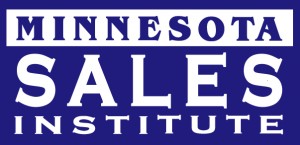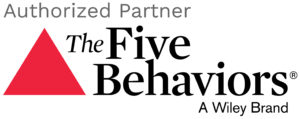What experiences teach you the most, the successes or the failures? As I watch my nephew get hypnotized by the Wii, he shares stories of how he learned to advance each level based on his failures. He doesn’t give up, he just hits “start” after each “game over.”
We could learn a lesson from him and apply it to the different roles we play in the game of life as adults, parents, spouses, career-minded employees or entrepreneurs. We have non-fatal failures and successes every day, and if we don’t, there is not enough activity happening. The first step is getting outside our comfort zone.
Where are you most comfortable? How much time do you spend there? We need to spend more time outside our comfort zone in order to grow and experience more! A scientist learns from their experiments. People learn through their experiences. We need to make more experiences for ourselves. Every experience has an outcome, which brings us closer to understanding and victory.
How we respond to failure is usually an accurate predictor of how likely we are to achieve great success. The key word here is respond. Responding is acting with and after intellectual, premeditated, cognitive analysis. This is not reacting, which is grounded in an emotional, suggestive or defensive -stimulus. If regret were to be a factor, reacting is going to give you a greater likelihood of wishing you had a “do over” chance.
Since responding is premeditated, let’s come up with a formula, a formula that gives us encouragement to “Reject the Nest” and move outside our comfort zone. Here is the process: Try → Fail → Learn → Accomplishment.
Try starts with executing based on little experience. Trying is a 6-year-old learning to ride a bike. Later as a 14 year old, playing chicken with the neighbor boys and setting up jumps at the bottom of a steep hill, which I did. After a few trips over the handlebars and discovering the taste of dirt, I figured a few things out (and wished my parents bought me that computer I wanted). We just do it, as the adage says. We may give our actions little thought. Actions based on fixed preconceived notion or an unrealistic imagination.
Later we learn our imagination was different than the unpredicted outcome. We fail. We feel like a failure. And everyone knows it. In reality, not everyone knows it. You failed, but are not a failure. Failure is very accurate feedback from a credible source. Failure is temporary. Quitting is permanent.
We may react and quickly repeat the same steps without much thought; exercising an admirable determination. Maybe it’s on a prospecting call where they hang up on you; you pick up the phone again to make another call to avoid the oncoming sense of discouragement, or quickly hit another golf ball after the first one ended up in the water, only to receive the same result.
It’s common to blame someone else for the outcome. If we continue to do that, we will never change, insisting that “failure is not our fault.” In reality we are the only one that can change the outcome. We are the only one that truly knows what needs to change.
After giving it some thought, we review and reflect on the failure. We look at the areas we had an influence and search for options, and just like the scientist who learns from the failed experiment, we take responsibility for the results. We debrief and when given another chance or opportunity, we apply a new approach, outlook, behavior, or attitude. We learn from failure more than from the successes in life. When we own our failures, we also own our successes, without guilt.
I cannot express enough how important this step of being accountable and learning from failure is in the process. In the roles we play in life, we will make mistakes and fail within each. When marriages end and one blames the other, without reflection on themselves, they are doomed to repeat the same experience only to receive the same outcome. No learning, just repeating.
After we reflect on our experiences, we take responsibility in the areas we can control and improve, and after we implement a new method; our odds of success increase and we achieve the goal. Success is and can only be defined by you in the role you play. This process can be applied to all roles, with you in charge of the results.
We cannot get a ‘”yes”’ until we try, and risk getting a “no.” We cannot fail if we never try. Success starts with “try.”








A is for Anxiety, which is experiencing failure in advance. Tell yourself enough vivid stories about the worst possible outcome and you’ll soon come to believe them. Worry is not preparation, and anxiety doesn’t make you better.